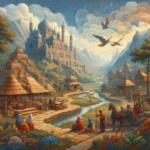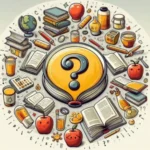In an increasingly interconnected world, understanding diverse cultures and perspectives is more vital than ever.
Books have long served as powerful gateways to explore the rich tapestry of human experience, allowing readers to step into the shoes of others and see the world through different lenses. Whether it’s through heartfelt memoirs, captivating fiction, or insightful non-fiction, literature has the unique ability to challenge our preconceptions and broaden our horizons. In this post, we’ll dive into the top 10 books that not only tell compelling stories but also offer invaluable insights into various cultures, traditions, and viewpoints. Get ready to embark on a literary journey that promises to expand your mind, deepen your empathy, and ignite your curiosity about the beautiful diversity that exists in our global community.
1. Introduction: The Importance of Understanding Cultures and Perspectives
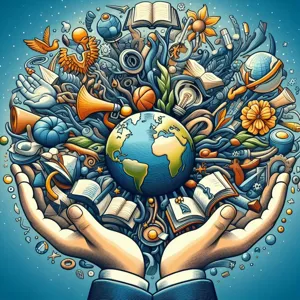
In an increasingly interconnected world, understanding diverse cultures and perspectives is not just a luxury—it’s a necessity. As we navigate through our daily lives, we encounter individuals from various backgrounds, each carrying their own unique beliefs, traditions, and experiences that shape their worldview. Cultivating an appreciation for these differences fosters empathy, enhances communication, and promotes collaboration, transforming our interactions into opportunities for growth and learning.
reading is one of the most powerful tools we have to broaden our understanding of the rich tapestry of human experience. Books provide a window into the lives of others, allowing us to immerse ourselves in stories that illuminate the complexities of culture, identity, and societal dynamics. Whether it’s through fiction that transports us to distant lands or non-fiction that presents historical accounts and personal narratives, literature has the ability to challenge our assumptions, expand our horizons, and deepen our appreciation for the diverse human experience.
In this blog post, we have curated a list of the top 10 books that not only reflect the beauty and complexity of various cultures but also encourage critical thinking and self-reflection. Each title offers a unique perspective, inviting readers to explore the nuances of life beyond their own experiences. By engaging with these narratives, we can break down barriers, foster understanding, and ultimately create a more inclusive and compassionate world. Join us as we embark on this literary journey, designed to broaden your understanding of cultures and perspectives, one page at a time.
2. Criteria for Selecting the Books
When exploring the vast tapestry of global cultures and perspectives, the selection of literature becomes a vital step in ensuring a rich and enlightening experience. Here are some key criteria to consider when choosing the books that will broaden your understanding:
1. **Authenticity of Voice**: Seek out works that are written by authors who are genuinely part of the culture or community they represent. Authentic voices bring depth and nuanced insights that enrich your understanding, providing a firsthand perspective on the social, political, and cultural landscapes they inhabit.
2. **Diversity of Perspectives**: Aim for a diverse array of authors and genres to capture the complexity of human experiences. include both contemporary and historical works, fiction and nonfiction, to gain a comprehensive view of how cultures have evolved and how they intersect with one another.
3. **Cultural Relevance**: Consider the relevance of the book to current cultural conversations. Works that address modern issues—such as identity, migration, and globalization—can offer valuable reflections on how cultures adapt and respond to an ever-changing world.
4. **Engaging Narratives**: While educational value is crucial, a compelling narrative is equally important. Engaging stories keep readers invested and open to the lessons within. Look for books that weave personal anecdotes, historical context, and cultural commentary into a seamless and captivating narrative.
5. **Critical Acclaim and Recommendations**: Turn to literary awards, critical reviews, and recommendations from thought leaders in cultural studies. Books that have received accolades or notable mentions often signify quality and thoughtful engagement with their subjects.
6. **Intersectionality**: Choose texts that explore the intersections of various identities—race, gender, sexuality, and class. This approach fosters a more holistic understanding of cultures, allowing readers to appreciate the complexities and nuances that exist within any society.
By applying these criteria, you can curate a reading list that not only broadens your horizons but also deepens your empathy and understanding of the diverse world we inhabit. Each book becomes a portal into another way of life, inviting you to explore the rich narratives that shape human experience across the globe.
3. “Things Fall Apart” by Chinua Achebe: A Perspective on Colonialism
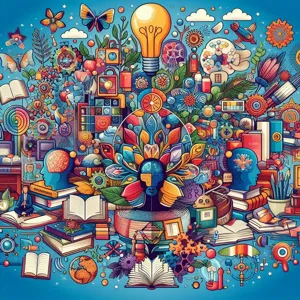
“Things Fall Apart,” a seminal work by Nigerian author Chinua Achebe, offers readers a profound and nuanced perspective on the impacts of colonialism in Africa. Set in the late 19th century, the novel tells the story of Okonkwo, a respected leader and warrior in the Igbo community of Umuofia, whose life unravels as British colonial forces and Christian missionaries assert their influence over his village and traditions.
Achebe’s writing is both lyrical and unflinching, immersing readers in the rich tapestry of Igbo culture before the arrival of European powers. Through Okonkwo’s struggles and the subsequent disintegration of his society, Achebe deftly highlights the complexities of cultural identity, masculinity, and the clash of traditions. The narrative transcends mere historical account; it’s a deeply human story that examines the personal and communal tragedies wrought by colonialism.
The novel’s title itself is emblematic of the broader themes it explores—how the imposition of foreign values can lead to the fracturing of indigenous cultures and identities. Through evocative imagery and relatable characters, Achebe provides a voice to the colonized, challenging the often one-dimensional portrayals of African societies in literature.
“Things Fall Apart” is not just a tale of loss; it is also a call to recognize and respect the diversity of human experiences. As readers journey through Okonkwo’s life, they are invited to confront their own assumptions about culture, power, and resilience. This book is essential for anyone seeking to understand the complexities of post-colonial narratives and the enduring legacies of colonial rule, making it a vital addition to your reading list on cultural perspectives.
4. “The Kite Runner” by Khaled Hosseini: Exploring Friendship and Redemption in Afghanistan
In “The Kite Runner,” Khaled Hosseini deftly intertwines the themes of friendship, betrayal, and redemption against the backdrop of a war-torn Afghanistan. This poignant narrative follows the life of Amir, a young boy from a privileged background, and his complex relationship with Hassan, the son of his father’s servant. The bond between Amir and Hassan reflects not only the innocence of childhood but also the stark class divisions and societal norms that shape their lives. As they navigate the joys of kite fighting and the trials of growing up in a country on the brink of upheaval, readers are immersed in the rich tapestry of Afghan culture, traditions, and the devastating impact of political turmoil.
Hosseini’s storytelling is a compelling invitation to understand the nuances of friendship and loyalty, as well as the heavy toll of guilt and the pursuit of redemption. The narrative takes a harrowing turn, forcing Amir to confront his past mistakes and seek forgiveness in a country that has dramatically changed. Through Amir’s journey, readers gain profound insights into the resilience of the human spirit, the importance of atonement, and the complexities of forgiveness.
“The Kite Runner” is not just a story about personal redemption; it serves as a lens through which we can view Afghanistan’s history, its beauty, and its struggles. The vivid descriptions of the Afghan landscape, the cultural practices, and the emotional depth of the characters bring to life a world that is often misunderstood. This novel is essential reading for anyone seeking to broaden their understanding of different cultures, as it powerfully illustrates how personal and collective histories are intricately linked, and how the bonds of friendship can transcend even the deepest divides.
5. “The Joy Luck Club” by Amy Tan: Cultural Identity and Generational Conflicts
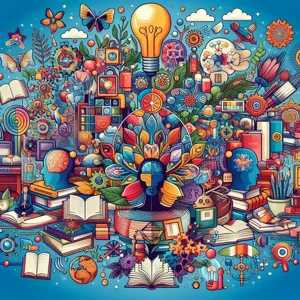
“The Joy Luck Club” by Amy Tan is a poignant exploration of cultural identity and generational conflicts, weaving together the lives of four Chinese-American immigrant families and their American-born daughters. Through a series of interconnected narratives, Tan delves into the complex tapestry of cultural heritage, revealing how the weight of tradition influences personal identity and family dynamics.
Set against the backdrop of both China and America, the novel artfully juxtaposes the experiences of the mothers, who grew up in a vastly different cultural landscape, with those of their daughters, who navigate the challenges of assimilation and the quest for self-identity in a Western society. Each character’s story unfolds with rich detail, showcasing the struggles and triumphs that arise from their differing perspectives.
Tan’s lyrical prose shines as she captures the nuances of language and communication, illustrating how misunderstandings can arise between generations. The mothers, steeped in their cultural values and historical experiences, often clash with the daughters, who grapple with their dual identity and the pressures of modern American life. This generational conflict serves as a catalyst for deeper understanding, prompting both sides to confront their differences and ultimately find common ground.
“The Joy Luck Club” not only offers a compelling narrative but also invites readers to reflect on their own cultural identities and the influence of family heritage. Through its rich character development and emotional depth, the novel serves as a powerful reminder of the bonds that tie us together, even as we navigate the complexities of our individual journeys. Whether you’re seeking to broaden your understanding of cultural dynamics or simply looking for a beautifully written story, Amy Tan’s masterpiece is an essential read that resonates across generations.
6. “The Alchemist” by Paulo Coelho: A Journey of Self-Discovery Across Cultures
“The Alchemist” by Paulo Coelho is not just a novel; it’s an adventurous quest that transcends borders and dives deep into the heart of what it means to pursue your dreams. This enchanting tale follows Santiago, a young shepherd from Spain, who embarks on a transformative journey to discover his personal legend—his life’s purpose—after experiencing a recurring dream about finding treasure at the base of the Egyptian pyramids.
As Santiago travels through the deserts of North Africa, he encounters a rich tapestry of characters, each representing different cultures and philosophies. From the wise king Melchizedek to the mysterious alchemist, these figures teach him invaluable lessons about the interconnectedness of all life, the importance of listening to one’s heart, and the courage it takes to pursue one’s dreams. Coelho masterfully weaves themes of spirituality, destiny, and the universal language of the world, emphasizing that every individual’s journey is unique yet universally relatable.
Through Santiago’s adventures, readers are invited to reflect on their own paths and the diverse experiences that shape our understanding of the world. The novel inspires a profound appreciation for the myriad perspectives and cultures that exist, reminding us that while our journeys may differ, the pursuit of dreams and self-discovery is a shared human experience. “The Alchemist” not only captivates with its narrative but also serves as a powerful reminder of the beauty that lies in embracing different cultures and the wisdom they impart.
7. “One Hundred Years of Solitude” by Gabriel García Márquez: Magical Realism and Latin American Culture
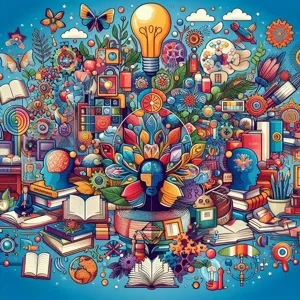
**7. “One Hundred Years of Solitude” by Gabriel García Márquez: Magical Realism and Latin American Culture**
In the realm of literature, few works can transport readers to a world as vibrant and surreal as Gabriel García Márquez’s “One Hundred Years of Solitude.” This iconic novel, a cornerstone of magical realism, delves deep into the heart of Latin American culture, intertwining the ordinary with the extraordinary in a way that challenges conventional perceptions of reality. Set in the fictional town of Macondo, the narrative follows the Buendía family across seven generations, encapsulating the complexities of love, power, solitude, and history.
Márquez masterfully weaves elements of magic into the fabric of everyday life, where rainstorms of yellow flowers fall from the sky and characters can ascend to the heavens without warning. This approach not only captivates the imagination but also serves as a profound commentary on the social and political turmoil of Latin America. The narrative’s cyclical structure reflects the region’s tumultuous history, marked by colonization, revolution, and the enduring search for identity.
As you journey through the pages of this remarkable work, you’ll encounter a rich tapestry of cultural symbols and themes that resonate deeply with the Latin American experience. The blending of myth and reality invites readers to reflect on the nature of existence and the stories that shape our lives. By immersing yourself in “One Hundred Years of Solitude,” you gain not only a deeper understanding of Latin American culture but also a unique perspective on the universal human condition—one that transcends borders and speaks to the shared experiences of love, loss, and the unbreakable ties of family.
Whether you are a seasoned reader or new to the world of literature, Márquez’s masterpiece offers an enlightening exploration of culture, narrative style, and the beauty of embracing the magical within the mundane. Prepare to be enchanted, challenged, and ultimately transformed by a story that lingers long after the final page is turned.
8. “The Book Thief” by Markus Zusak: Humanity and War Through a Unique Lens
“The Book Thief” by Markus Zusak is a masterful narrative that invites readers into the tumultuous world of Nazi Germany, seen through the eyes of a young girl named Liesel Meminger. Set against the backdrop of World War II, this poignant novel explores the power of words and the resilience of the human spirit in the face of unimaginable adversity.
Zusak employs a unique narrative style, with Death as the narrator, providing a haunting yet deeply insightful perspective on humanity during one of history’s darkest periods. Through Liesel’s love for stolen books and the friendships she fosters with her foster parents, Hans and Rosa Hubermann, and her best friend, Rudy Steiner, the story unfolds with a delicate balance of sorrow and beauty.
As Liesel navigates the complexities of war, loss, and friendship, readers are introduced to a tapestry of characters who each embody different responses to the horrors surrounding them. From the Jewish Himmel street residents hiding in the Hubermanns’ basement to the local townspeople grappling with their moral compasses, Zusak captures the essence of diverse perspectives living under the weight of tyranny.
“The Book Thief” challenges readers to reflect on the power of words to both destroy and heal, making it a profound exploration of how culture, community, and compassion can thrive even in the bleakest of times. It’s a reminder that stories have the power to transcend boundaries and connect us, offering a rich understanding of the human experience across cultures. This novel is not just a tale of survival; it’s an invitation to empathize, to understand, and to remember the myriad ways in which humanity endures.
9. “Persepolis” by Marjane Satrapi: Growing Up in Iran During the Islamic Revolution
“Persepolis” by Marjane Satrapi is not just a graphic novel; it’s a poignant memoir that offers readers a candid glimpse into the complexities of growing up in Iran during the tumultuous period of the Islamic Revolution. Through her expressive illustrations and heartfelt narrative, Satrapi captures the innocence of childhood juxtaposed against the harsh realities of political upheaval and social change.
The story begins in the late 1970s, where a young Marjane, affectionately known as Marji, embarks on her journey of self-discovery amid a landscape fraught with tension and conflict. As she navigates her formative years, readers are introduced to the stark contrasts of her everyday life—the warmth of family gatherings, the joy of childhood games, and the sudden, chilling imposition of oppressive regimes. Satrapi’s unique art style, characterized by bold black-and-white drawings, enhances the emotional resonance of her experiences, allowing readers to connect deeply with her struggles and triumphs.
What makes “Persepolis” particularly compelling is its ability to humanize the often-misunderstood culture of Iran. Satrapi’s storytelling transcends mere historical documentation; it invites readers to empathize with her quest for identity in a rapidly changing world. Through her lens, we witness the impact of war and political strife on personal lives, the resilience of the human spirit, and the importance of cultural heritage.
“Persepolis” serves as a vital reminder of the power of narrative in fostering understanding across cultures. It encourages us to consider the diverse perspectives that shape our world, making it an essential read for anyone looking to broaden their understanding of not only Iranian culture but the universal themes of love, loss, and the fight for freedom. This graphic memoir is a testament to the strength found in vulnerability and the enduring quest for one’s voice in the face of adversity.
10. “Native Son” by Richard Wright: Race and Identity in America
“Native Son,” authored by Richard Wright, is a powerful and unflinching exploration of race and identity in America. Published in 1940, this seminal work offers a gripping narrative that delves into the life of Bigger Thomas, a young Black man living in the oppressive landscape of Chicago’s segregated South Side. Wright’s novel is not just a story about one man’s struggles; it is a profound commentary on the systemic racism and societal constraints that shape the lives of many African Americans.
Through Bigger’s experiences, readers are invited to confront the harsh realities of poverty, fear, and the inescapable weight of societal expectations. Wright’s vivid prose captures the visceral emotions of his characters, allowing readers to empathize with their plight while also challenging preconceived notions about race and identity. The book’s raw honesty forces readers to grapple with the uncomfortable truths of racism and its impact on personal identity, aspirations, and the pursuit of freedom.
“Native Son” is not merely a reflection of its time; it remains poignantly relevant today, urging us to consider how history continues to influence contemporary discussions around race and identity. By immersing yourself in this powerful narrative, you will gain a deeper understanding of the complexities of race relations in America and the enduring struggle for personal and collective identity. This book is essential reading for anyone seeking to broaden their cultural awareness and engage meaningfully with the ongoing discourse surrounding race, justice, and human rights.
11. “The Namesake” by Jhumpa Lahiri: An Immigrant’s Story and Cultural Displacement
“The Namesake” by Jhumpa Lahiri is a poignant exploration of identity, belonging, and the immigrant experience. The novel follows Gogol Ganguli, the American-born son of Indian immigrants, as he navigates the complex terrain of his dual heritage. From the very beginning, readers are immersed in the rich tapestry of Gogol’s life, where the clash of cultures manifests in every familial interaction, social gathering, and personal struggle.
Lahiri adeptly captures the sense of cultural displacement that many immigrants face, portraying the intricate dynamics between tradition and modernity. Through Gogol’s journey, we witness the weight of his name—an inheritance steeped in significance and expectation—colliding with his desire to forge an independent identity. The narrative beautifully illustrates how names can shape our experiences and perceptions, serving as a metaphor for the larger quest for self-understanding in a multicultural world.
As Gogol grapples with feelings of alienation and the yearning for acceptance, Lahiri invites readers to reflect on their own identities and the influences that shape them. The book delves into the emotional nuances of family ties, the challenges of assimilation, and the longing for connection across generational divides. With lush prose and deeply relatable characters, “The Namesake” is not just a story about an immigrant’s journey; it’s a profound examination of what it means to belong in a world that often feels divided.
This novel is essential reading for anyone seeking to broaden their understanding of cultural complexities and the delicate balance between heritage and personal identity. Lahiri’s masterful storytelling resonates with universal themes of love, loss, and the quest for belonging, making “The Namesake” a timeless reflection on the immigrant experience that continues to resonate today.
12. “The God of Small Things” by Arundhati Roy: Caste, Politics, and Family in India
“The God of Small Things,” the debut novel by Arundhati Roy, is a poignant exploration of the complexities of life in Kerala, India, through the lens of caste, politics, and family dynamics. Set against the backdrop of a richly detailed landscape, the narrative unfolds across two timelines, weaving together the childhood memories of fraternal twins Estha and Rahel with the harrowing consequences of a tragedy that reverberates through their lives.
Roy’s lyrical prose immerses readers in the sights, sounds, and scents of Indian culture, illustrating how deeply entrenched social hierarchies shape individual destinies. The novel delves into the rigid caste system, revealing its insidious nature and the way it governs relationships, love, and societal expectations. Through the eyes of the twins, we witness the heartbreaking consequences of forbidden love and the societal taboos that dictate their family’s fate.
Politics permeates the narrative as well, reflecting the turbulent history of India and the socio-economic struggles that accompany it. Roy deftly critiques the intersection of personal and political realms, showing how systemic oppression affects the lives of ordinary people, especially women and those from marginalized communities.
The themes of memory and loss echo throughout the novel, inviting readers to ponder the weight of the past on the present. “The God of Small Things” is not merely a story about a family; it is a profound meditation on how small moments—seemingly insignificant at the time—can ripple out to create monumental impacts on lives and communities.
By engaging with this book, readers gain insight into the intricate tapestry of Indian culture, learning not just about the struggles of its people, but also about resilience, love, and the deep-seated connections that bind families across generations. Roy’s masterful storytelling and rich character development make this a compelling read for anyone seeking to broaden their understanding of cultural complexities and the multifaceted nature of human experience.
13. “The Shadow of the Wind” by Carlos Ruiz Zafón: A Love Letter to Literature and Barcelona
“The Shadow of the Wind” by Carlos Ruiz Zafón is not just a novel; it’s a mesmerizing labyrinth that invites readers to explore the intricate tapestry of post-war Barcelona through the eyes of a young boy, Daniel Sempere. Set against the backdrop of the city’s shadowy alleys and whispering bookstores, this literary masterpiece unfolds the story of Daniel’s discovery of a forgotten book by an obscure author, Julián Carax. As he delves deeper into the mysterious life of Carax, Daniel becomes ensnared in a web of intrigue, obsession, and the haunting echoes of the past.
Zafón’s prose is rich and evocative, painting vivid scenes that transport readers to the cobblestone streets and bustling cafes of Barcelona. The city itself emerges as a character, imbued with history, secrets, and a palpable sense of nostalgia. Through Daniel’s journey, readers are invited to reflect on the power of literature to shape lives, preserve memories, and connect generations.
As the narrative unfolds, themes of love, betrayal, and the relentless pursuit of truth surface, compelling readers to confront their own perspectives on life and the complexities of human emotion. Zafón’s work serves as a poignant reminder of the fragile beauty of storytelling and its ability to transcend cultural boundaries. “The Shadow of the Wind” is not merely a tale of mystery and romance; it is a love letter to the written word, encouraging readers to cherish the stories that shape our understanding of the world and the myriad of perspectives that accompany them. For anyone seeking to broaden their cultural horizons, this enchanting novel is a must-read, offering a deep dive into the heart of literature and the soul of Barcelona.
14. Conclusion: Reflecting on Perspectives Gained from Reading
As we reach the conclusion of our exploration into the top 10 books that expand our understanding of diverse cultures and perspectives, it’s crucial to reflect on the profound impact that reading can have on our worldview. Each of the books mentioned in this list offers not just a story, but an invitation to step into the shoes of others—embracing their joys, struggles, and unique ways of life.
In a world often characterized by division and misunderstanding, literature serves as a bridge, connecting us to experiences vastly different from our own. Whether it’s through the eyes of a young boy navigating his identity in a foreign land, a family grappling with the complexities of tradition, or a community coming together in the face of adversity, these narratives challenge us to reconsider our assumptions and biases.
As you close the pages of these transformative works, take a moment to contemplate the perspectives you’ve gained. How have these stories altered your understanding of cultural nuances? What insights can you carry into your daily interactions? Embracing the richness of diverse viewpoints fosters empathy and compassion, essential traits in our increasingly interconnected world.
Ultimately, the journey doesn’t end with the last chapter. The knowledge and understanding gleaned from these books should inspire us to seek out more voices, stories, and experiences. By continually engaging with literature from around the globe, we not only enrich our own lives but also contribute to a more harmonious and understanding society. So, pick up that next book, and let the exploration of culture and perspective continue!
15. Suggested Further Reading and Resources for Cultural Understanding
In our increasingly interconnected world, deepening our understanding of diverse cultures and perspectives is more essential than ever. While the books we’ve explored provide a solid foundation, there’s a wealth of additional resources that can further enrich your journey into cultural appreciation and awareness.
**Documentaries and Films**: Visual storytelling is a powerful medium for understanding different cultures. Documentaries like *13th*, which examines the intersection of race, justice, and mass incarceration in the United States, or *Jiro Dreams of Sushi*, which offers a window into Japanese culinary traditions and the philosophy of craftsmanship, can be eye-opening experiences. Streaming platforms often host an array of international films that capture the nuances of life in various cultures, enhancing your understanding through narrative and emotion.
**Podcasts**: The podcasting realm is brimming with insightful discussions about culture, identity, and social issues. Shows like *Code Switch* from NPR explore the complexities of race and ethnicity in America, while *The Moth* shares true stories from people from all walks of life, providing a platform for cultural narratives that might otherwise go unheard.
**Online Courses**: Platforms such as Coursera and edX offer courses on cultural anthropology, global history, and intercultural communication that can deepen your understanding in structured formats. These courses often include materials from leading universities and are facilitated by experts in their fields.
**Community Events and Cultural Festivals**: Engaging with your local community can also be a great way to broaden your cultural horizons. Attend cultural festivals, art exhibits, or workshops that celebrate different traditions and histories. These immersive experiences provide firsthand insights and foster connections with individuals from diverse backgrounds.
**Travel Blogs and Vlogs**: To vicariously experience different cultures, travel blogs and vlogs can be invaluable resources. Writers and content creators often share personal stories, cultural etiquette, and travel tips that offer a glimpse into the heart of various societies. Look for creators who emphasize respectful and responsible travel practices, ensuring an authentic exploration of cultures.
As you delve into these additional resources, remember that cultural understanding is an ongoing journey. Each book, film, podcast, or personal experience you engage with adds a new layer to your perspective, fostering empathy and appreciation for the rich tapestry of human experience. Embrace the process, and let your curiosity guide you to new discoveries and deeper connections.
As we conclude our exploration of the top 10 books that can profoundly broaden your understanding of cultures and perspectives, we hope you feel inspired to embark on a literary journey that transcends borders and enriches your worldview. Each of these carefully selected titles offers unique insights into diverse experiences, challenging preconceived notions and encouraging empathy. Whether you’re delving into the heart of a bustling city or reflecting on the quiet rhythms of rural life, these books serve as windows into the lives of others. Embrace the power of storytelling and let these narratives inspire conversations that bridge cultural divides. We invite you to pick up one of these transformative reads and discover the beauty of our shared humanity. Happy reading!

